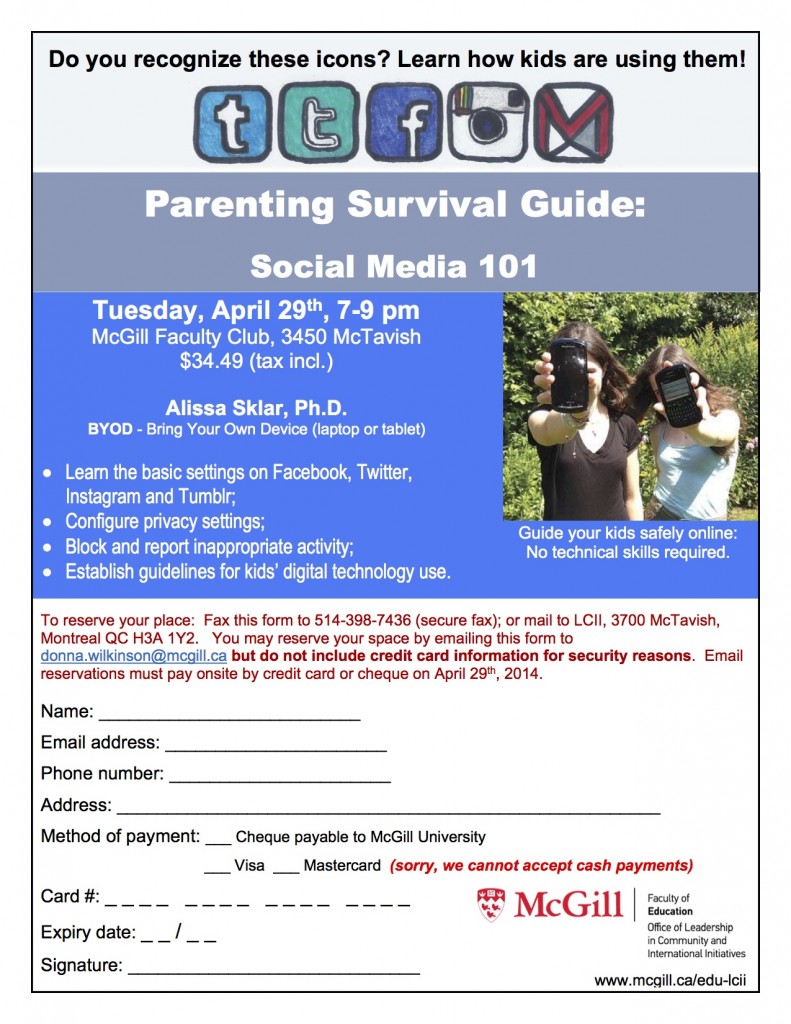 Concerned about your abilities to monitor and supervise your kids online? Wondering how to help them use the Internet safely, productively and responsibly? Parent of kids from preschool to grade 7 are invited to spend two hours with us at the McGill Faculty Club on Tuesday, April 29th and bring yourselves up to speed. No experience necessary!
Concerned about your abilities to monitor and supervise your kids online? Wondering how to help them use the Internet safely, productively and responsibly? Parent of kids from preschool to grade 7 are invited to spend two hours with us at the McGill Faculty Club on Tuesday, April 29th and bring yourselves up to speed. No experience necessary!
We will look at some basic guidelines and suggested household rules, explain which social media accounts are currently most popular, walk you through account set up, recommended privacy controls, how to block inappropriate behaviour and direct your kids to some of the wonderful, creative places the Internet has to offer. If you are interested, bring along a tablet or laptop to configure your own settings as we go (wi-fi access will be provided).
Registration is $34.49 per person (tax included). Email donna.wilkinson@mcgill.ca to sign up, or fax the form above to 514-398-7436.



